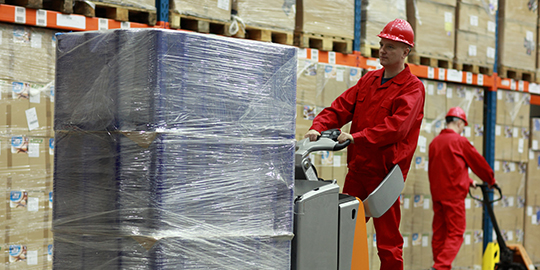
Traders concerned about implementation of Goods & Services Tax
Himanshu Vatsa | The Dollar Business
Even though the government seems to be determined for implementing Goods and Services Tax (GST) regime from April next year, experts say that the new norms lack clarity on many issues including the basic definition of goods and services. The GST Bill, which seeks to replace all indirect taxes levied by the Centre and state governments, has already been cleared by the Lok Sabha. The bill is expected to come for discussion in the Rajya Sabha during this monsoon session beginning July 21. The proposed legislation faces opposition from Congress and other political parties. And, analysts say that the ruling BJP has to do a lot of hard work to get the nod from the upper house where it lacks majority. The new legislation is aimed at abolishing indirect taxes like excise, sales tax, octroi etc., and put in place a uniform tax regime across the country. However, traders are concerned about its implementation. Several state governments have also expressed their concern over losing their share of tax collection revenue. While exporters are worried about various pending tax credits as per the existing system, many service providers operating within multi-state boundaries are not sure about the implication of GST on their businesses. “GST should be good and a simple tax. We want to move out of double taxation and cascading. The purpose should be to end cascading. It should be simple and destination based consumption tax. There should not be any duplication. The definition of goods and services should be clear,” Bimal Jain, Chairman of Indirect Tax Committee at PHD Chamber of Commerce, told The Dollar Business. While addressing traders at a workshop on GST in Delhi, Jain questioned the new legislation, saying that there is no clarity on the tax refund being given to exporters. He said the existing refunds are pending with tax authorities in spite of having the provision. “What will happen to those refunds which are already been filed?” he asked. Jain also asked the government to prepare a draft rule and invite suggestions from trade bodies before implementing GST. “Government should take the trade and industries for their public comments. Government should come out with the draft rules and regulation so that we can contribute our suggestions. It should come out with the place of supply rules and bring clarity in terms of definition like goods and services,” he told The Dollar Business. The government has set up a GST council to build consensus among various states on the new law. A select parliamentary panel is also assessing various aspects of GST and it is expected to submit its report in the first week of July. Experts are of the view that adopting concurrent duel GST model is best-suited for Indian political system. Under this model, the Centre as well as state governments impose taxes concurrently. This model has been implemented in countries like Brazil and Canada. While China and Australia have implemented central GST model, the US has put in place state GST model. Even though the government has assured that the GST rate will be lower than the existing taxes, traders are worried that states may levy additional tax which can trigger cascading in future. The GST council is yet to determine the rate of uniform tax under the proposed rule. As per the existing norms, the overall tax levied at central and state levels goes up to 27%, which affects exporters’ competitiveness in the international market. The average rate of tax levied across the globe is around 17%. “Any rate more than 17% is incompetitive for our trade industry and commerce, if at all we want to compete at the international market,” Jain said.
June 27, 2015 | 5:11 pm IST.






 to success.
to success.